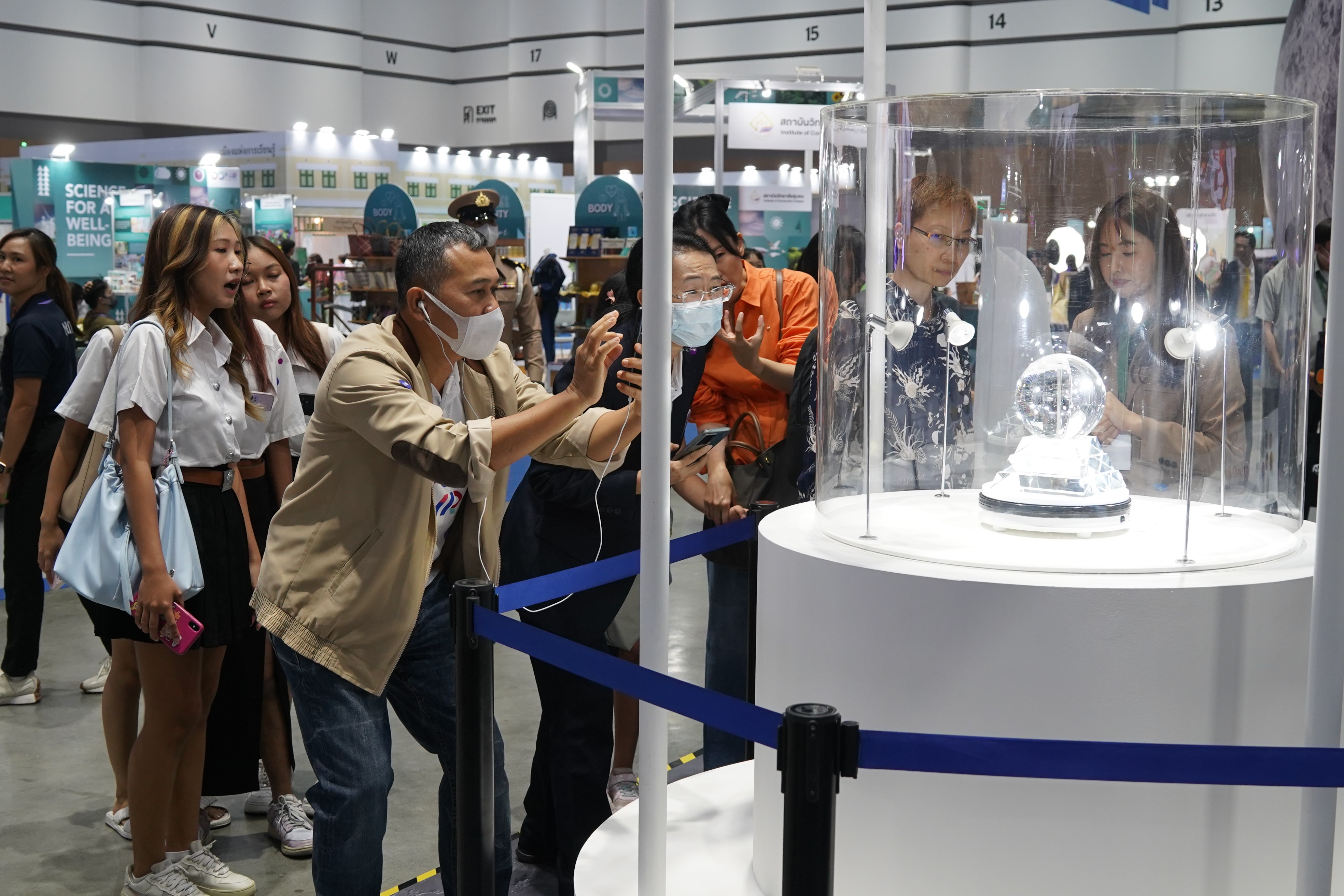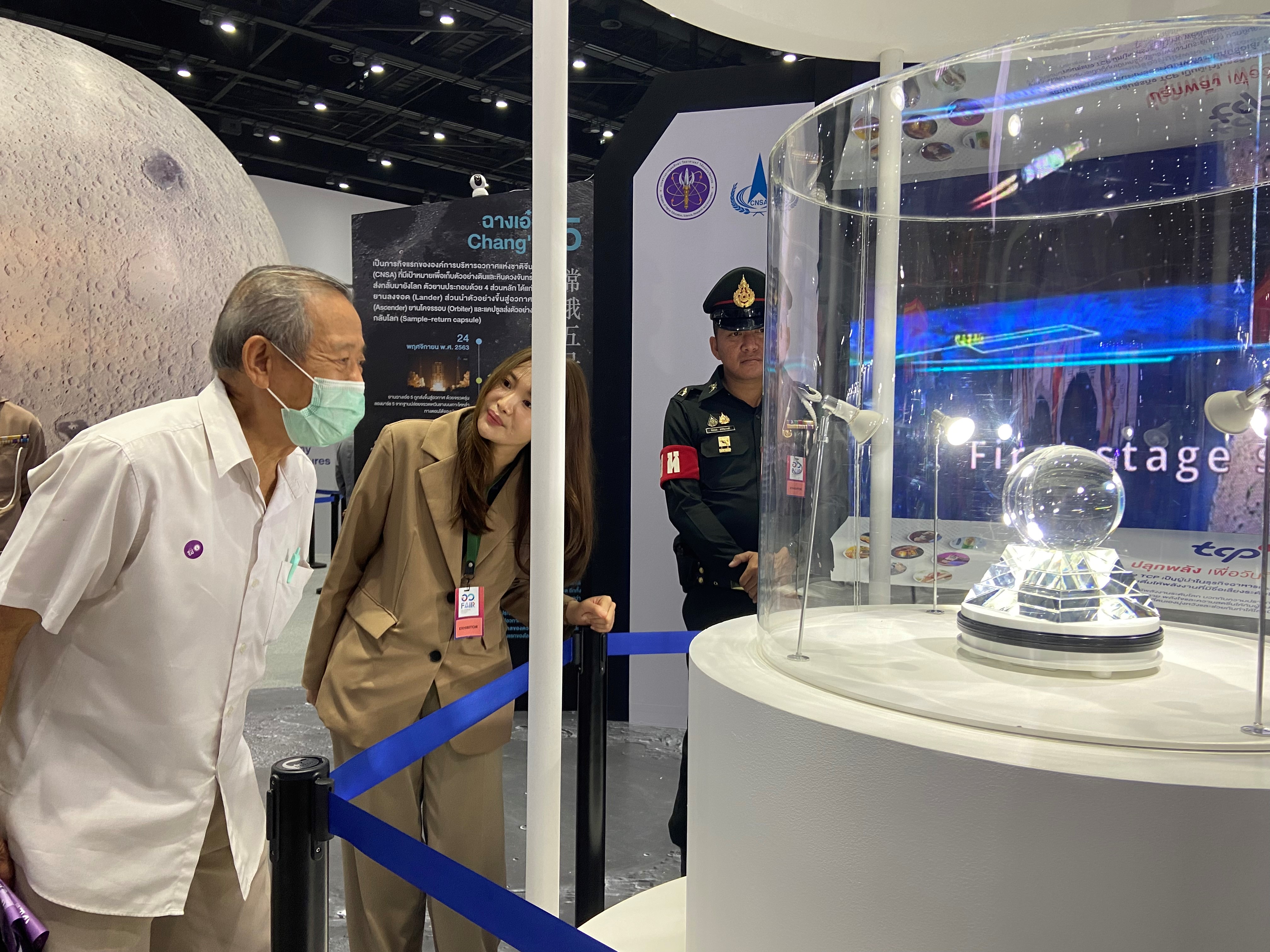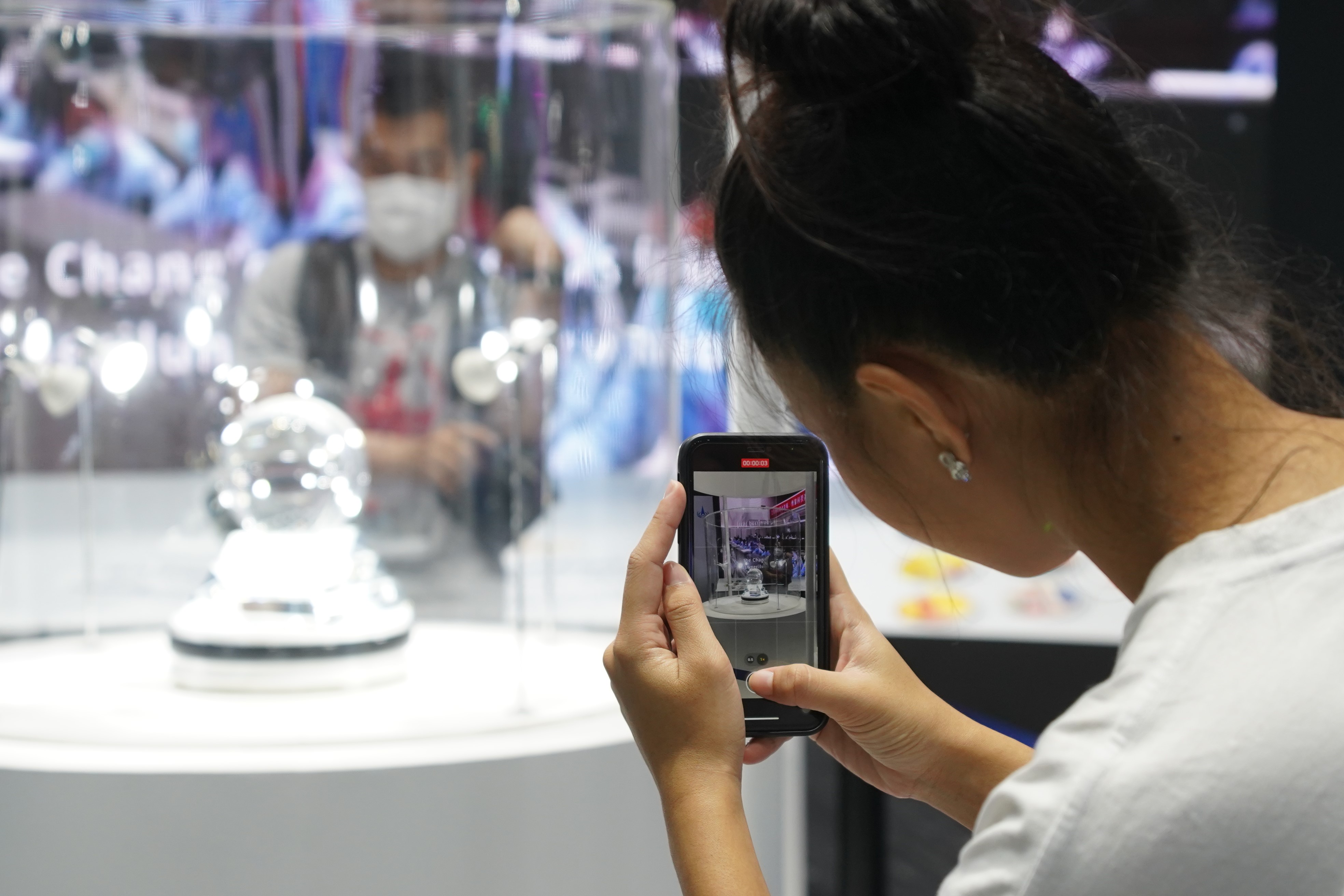
Moon soil and rock samples collected by Chinese spacecraft Chang'e 5 have generated much interest among visitors to a fair in Bangkok — the first overseas destination of the lunar soil samples.
The National Astronomical Research Institute of Thailand had collaborated with the China National Space Administration (CNSA) to bring the samples to the Thai capital.
The moon soil and rock samples, weighing 75 milligrams, are placed in a crystal ball that can be rotated for a 360-degree viewing, and equipped with magnifying lens to help viewers see better.
ALSO READ: Researchers find natural few-layer graphene in Chang'e-5 lunar soil samples
The entire display item, which is 17 centimeters in width, represents the culmination of China’s 17-year-effort to land on the moon and collect soil and rock samples.
The samples, a highlight of SCI Power for Future Thailand Fair, will be on display at the Queen Sirikit National Convention Center from July 22 to 28. The exhibition invites the public to explore the world of space and discover the technological and innovative achievements resulting from cutting-edge astronomical challenges.
The exhibition in Bangkok is titled “The Moon Brightens My Way Back”.

“My students and I are all very excited to see the lunar soil. It is the first time that we are so close to the moon,” said Tippawan Boonkaew, a high school teacher who led dozens of students from Bangkok’s neighboring province of Nonthaburi to see the exhibition on July 23.
She said the lunar soil samples were much smaller than they had expected, but were still very impressive. “Also, we are very happy and proud that China chose Thailand to be the first destination to exhibit the lunar soil,” she added.
China’s most sophisticated and challenging space adventure – the Chang'e 5 robotic lunar mission – ended successfully in late 2022. The historic 23-day expedition took lunar samples back to Earth, making China the third country to achieve this feat after the United States and the former Soviet Union.
ALSO READ: Global experts obtain maturity index of Chang'e 5 lunar soil
“Thailand became the first destination for the samples’ overseas exhibition, which proves the friendship between Thailand and China. Many Thai people have a space dream, including me and the chance to have a close look at lunar soil is precious,” said Suppawat Zhou, a volunteer for the exhibition.
Thailand has joined the International Lunar Research Station program, initiated by China, on cooperation in the exploration and peaceful use of outer space, according to a memorandum signed by both countries in April.

Last year, as part of China's endeavor to boost international lunar research cooperation, Chinese scientists working for the CNSA selected a scientific instrument developed by their Thai peers to study space weather and cosmic rays to be part of the Chang'e 7 lunar mission.
“China has made lots of impressive technological breakthroughs over the past years.
READ MORE: Chang'e-5 samples to open new chapter in HK's lunar research
There are great opportunities for Thailand to realize our own development with the support of China’s leading technologies,” said Arm Tungnirun, director of the Chinese Studies Center at the Institute of Asian Studies at Chulalongkorn University. “The cooperation on space study is a great example. If we cannot realize our space dream on our own, we can still achieve the aim by collaborating with China.”


